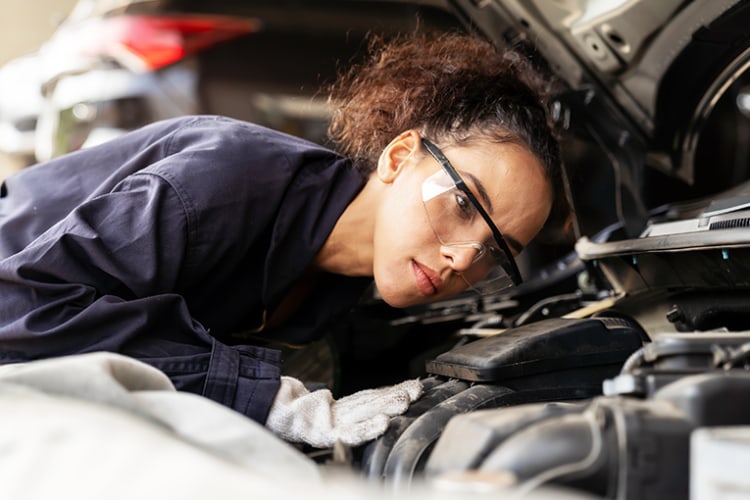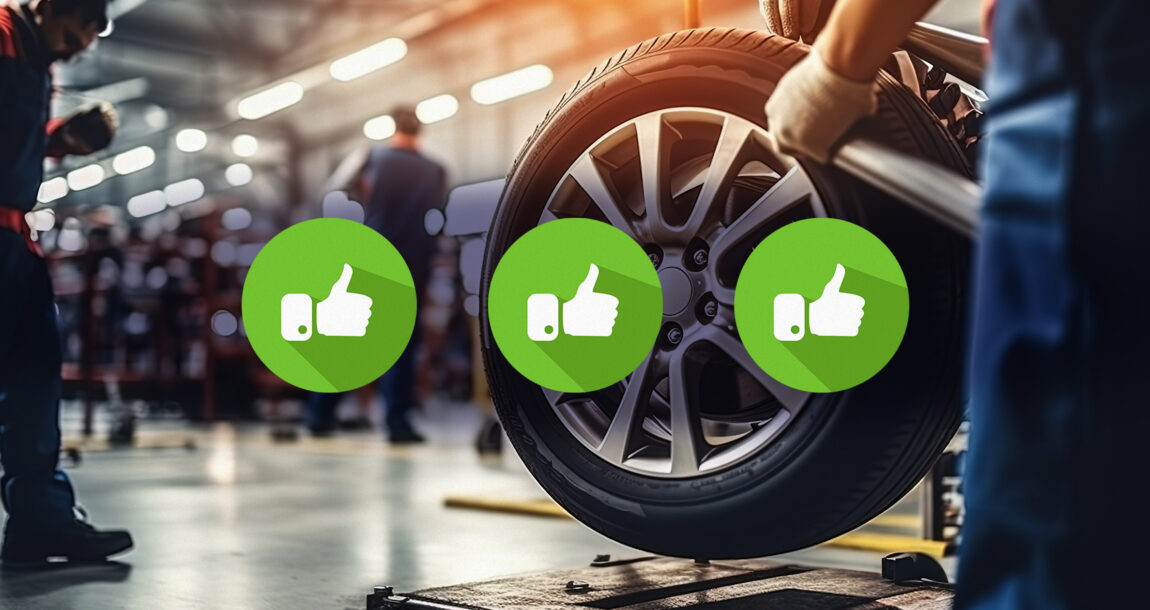All Categories
Featured
When your car starts to overheat, it can be a demanding and frightening circumstance. Comprehending just how to react in these minutes and taking actions to avoid future getting too hot can aid protect your car and prevent expensive repair services. If your automobile overheats and how to avoid it from occurring once again., here's what to do.
If Your Automobile Gets too hot,What to Do. Draw Over and Shut Off the Engine The first point you should do if your car starts to get too hot is to pull over to a secure location, such as a vehicle parking great deal or the shoulder of the road. Shut off the engine quickly to stop additional damages. Running an overheated engine can cause irreparable damages to the inner elements, consisting of the radiator and cylinder heads.
Permit the Engine to Cool After switching off the engine, provide it time to cool down. Opening up the hood can aid launch warm, but beware as the engine and bordering areas might still be incredibly hot. Wait at the very least 15-20 mins before attempting any kind of further activities.
Inspect the Coolant Degree Once the engine has cooled, check the coolant level. Never ever open the radiator cap while the engine is warm, as this can trigger hot coolant to spray and burn you.
Inspect for Leaks or Damaged Tubes While you are examining the coolant degree, check for any noticeable leakages or harmed hoses under the hood. Cracked or broken pipes can trigger coolant to leakage out, bring about a getting too hot engine. If you spot any type of concerns, you might need to call for roadside assistance or a tow to get the car to a technician.
Require Support If you can't identify the root cause of the concern or the getting too hot lingers after covering off the coolant, it's ideal to call for roadside aid. Driving with an overheated engine can trigger severe damages to your automobile and leave you stranded.
![]()
How to avoid Your Car from Overheating. Inspect Coolant Degrees On A Regular Basis One of the primary sources of getting too hot is low coolant levels. If required, make it a routine to examine your coolant levels frequently and top them off. Refer to your automobile's manual for the advised coolant mixture and maintenance intervals.
Check Your Radiator Your radiator plays a crucial role in keeping the engine cool. Make certain there are no clogs or debris blocking airflow with the radiator. If your radiator is blocked or damaged, it might not operate correctly, resulting in overheating.
Maintain Your Air conditioning System The cooling down system ought to be purged and replenished periodically. In time, coolant can end up being infected or shed its efficiency. Adhere to the supplier's referrals for purging the system, normally every 30,000 to 50,000 miles.
Screen the Thermostat and Water Pump The thermostat controls the temperature level of the engine, while the water pump circulates coolant through the engine. If either of these elements stops working, it can trigger the engine to overheat. Have your auto mechanic examine the thermostat and water pump during regular upkeep.
Stay Clear Of Straining the Car Overloading your automobile, specifically on long journeys or warm days, can stress the engine and the air conditioning system. Be conscious of your lorry's weight restrictions and attempt to prevent carrying hefty loads, particularly when driving in severe temperature levels.
Drive with Treatment Aggressive driving, such as speeding or quick velocity, can raise engine tension and warmth production. Slow down, specifically on hot days or when driving up steep inclines, to decrease the risk of overheating.
![]()
Final thought. Understanding what to do if your cars and truck overheats can avoid more damage to your engine and aid you deal with the scenario safely. By frequently examining your coolant levels, checking the radiator and pipes, and maintaining the air conditioning system, you can minimize the threat of overheating. With aggressive care and appropriate maintenance, your vehicle will remain in good condition, guaranteeing you stay safe and stay clear of expensive repair services in the future.
If Your Automobile Gets too hot,What to Do. Draw Over and Shut Off the Engine The first point you should do if your car starts to get too hot is to pull over to a secure location, such as a vehicle parking great deal or the shoulder of the road. Shut off the engine quickly to stop additional damages. Running an overheated engine can cause irreparable damages to the inner elements, consisting of the radiator and cylinder heads.
Permit the Engine to Cool After switching off the engine, provide it time to cool down. Opening up the hood can aid launch warm, but beware as the engine and bordering areas might still be incredibly hot. Wait at the very least 15-20 mins before attempting any kind of further activities.
Inspect the Coolant Degree Once the engine has cooled, check the coolant level. Never ever open the radiator cap while the engine is warm, as this can trigger hot coolant to spray and burn you.
Inspect for Leaks or Damaged Tubes While you are examining the coolant degree, check for any noticeable leakages or harmed hoses under the hood. Cracked or broken pipes can trigger coolant to leakage out, bring about a getting too hot engine. If you spot any type of concerns, you might need to call for roadside assistance or a tow to get the car to a technician.
Require Support If you can't identify the root cause of the concern or the getting too hot lingers after covering off the coolant, it's ideal to call for roadside aid. Driving with an overheated engine can trigger severe damages to your automobile and leave you stranded.

How to avoid Your Car from Overheating. Inspect Coolant Degrees On A Regular Basis One of the primary sources of getting too hot is low coolant levels. If required, make it a routine to examine your coolant levels frequently and top them off. Refer to your automobile's manual for the advised coolant mixture and maintenance intervals.
Check Your Radiator Your radiator plays a crucial role in keeping the engine cool. Make certain there are no clogs or debris blocking airflow with the radiator. If your radiator is blocked or damaged, it might not operate correctly, resulting in overheating.
Maintain Your Air conditioning System The cooling down system ought to be purged and replenished periodically. In time, coolant can end up being infected or shed its efficiency. Adhere to the supplier's referrals for purging the system, normally every 30,000 to 50,000 miles.
Screen the Thermostat and Water Pump The thermostat controls the temperature level of the engine, while the water pump circulates coolant through the engine. If either of these elements stops working, it can trigger the engine to overheat. Have your auto mechanic examine the thermostat and water pump during regular upkeep.
Stay Clear Of Straining the Car Overloading your automobile, specifically on long journeys or warm days, can stress the engine and the air conditioning system. Be conscious of your lorry's weight restrictions and attempt to prevent carrying hefty loads, particularly when driving in severe temperature levels.
Drive with Treatment Aggressive driving, such as speeding or quick velocity, can raise engine tension and warmth production. Slow down, specifically on hot days or when driving up steep inclines, to decrease the risk of overheating.

Final thought. Understanding what to do if your cars and truck overheats can avoid more damage to your engine and aid you deal with the scenario safely. By frequently examining your coolant levels, checking the radiator and pipes, and maintaining the air conditioning system, you can minimize the threat of overheating. With aggressive care and appropriate maintenance, your vehicle will remain in good condition, guaranteeing you stay safe and stay clear of expensive repair services in the future.
Latest Posts
Understanding Commercial Roof Maintenance: A Guide to Prolonging Roof Lifespan
Published Jan 06, 25
1 min read
Comprehensive Care Overview for Ceramic Tile Floor Covering
Published Jan 06, 25
1 min read
What Aspects Impact the Cost of Engine Repair Service?
Published Jan 06, 25
0 min read
More
Latest Posts
Understanding Commercial Roof Maintenance: A Guide to Prolonging Roof Lifespan
Published Jan 06, 25
1 min read
Comprehensive Care Overview for Ceramic Tile Floor Covering
Published Jan 06, 25
1 min read
What Aspects Impact the Cost of Engine Repair Service?
Published Jan 06, 25
0 min read